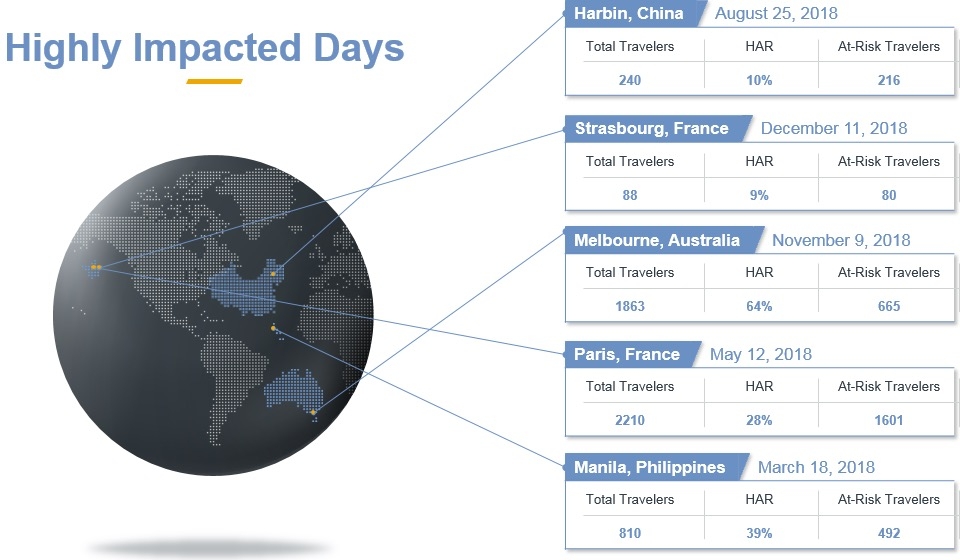
Hotel reviews, an invaluable source of data
We all want better data for more accurate reporting, but it also plays an important role in your duty of care.
Working with hotel sourcing consultants, utilizing information from RFPs, and reviewing data from your TMC and security services are a great way of assessing the security of properties, but your own travelers also provide an invaluable source of data.
A great place to get traveler feedback is from hotel reviews. This feedback is important, because on-sight assessments cannot be done for every property and most tools and questionnaires cannot provide the same level of granularity that individuals can.
Safety concerns expressed in reviews are a good cue to begin investigating a property or the surrounding areas. Should a region or property accumulate a lot of low safety reviews, it may be a good idea to take proactive steps such as messaging travelers and finding more visible ways to post safety tips.
If there is an accumulation of safety concerns, it may be a good idea to send a local employee to the property or to do a walkthrough yourself. Next steps could be setting targeted alerts to travelers with itineraries that contain the property or region, or even having your TMC block the hotel from appearing in your corporate tools.
Missing data could mean missing people
This brings us to an important element of duty of care. You are only as effective as your data allows you to be. Should travelers book outside of your corporate booking tools, then you are severely limited, or entirely helpless in supporting them during emergencies.
Many travel managers appreciate the safety concerns associated with direct bookings, but 2/3 of business travelers still don’t even know they are required to book in a corporate tool despite the fact that 8 in 10 businesses require it. This tells us that travel managers need to be better communicators.
Below is a quick overview of 5 actual incidents in 2018 where serious emergencies took place while RoomIt by CWT clients recorded low compliance levels:

Improving communications can help increase compliance
In the top example, 240 travelers from 14 different RoomIt by CWT clients were in Harbin, China when there was a major hotel fire. The fire ended up killing 19 people and injuring 23 more. Not only that, but the fire took place the day before a marathon, which attracted 30,000 participants and tens of thousands of additional spectators.
Unfortunately, 90% of the 240 travelers did not book through RoomIt, meaning 216 travelers could not be tracked or located during this devastating event. Responding to this incident and helping travelers remain safe is hard enough to do from abroad, assisting them on a high traffic day is even more difficult, but things get exponentially harder when travelers book out of channel. You either have to do a lot of guess work, or you won’t even know if travelers are in the impacted area at all.
There is never a way to guarantee safety for your travelers, so the best thing you can do is to proactively scrutinize as many aspects of safety as possible and to do as much as possible to improve your communications. Security trainings, intranet posts, booking tool posts, emails, blogs, forums, lunch-and-learns, travel fairs, and automated messaging tools are all great ways to pass along safety measures.
Lastly, a safety measure that should factor prominently in your messaging is to book in compliant channels. A request to book “preferred hotels” will not be as impactful as an explanation that booking out of channel (where preferred suppliers are preferenced) can put them in greater danger.
